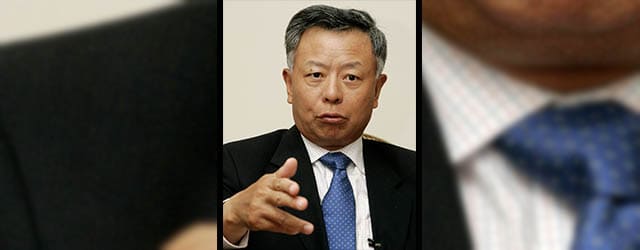At the beginning of September, the fledgling Asian Infrastructure Investment Bank took an important step forward with the appointment of its first president.

The man at the top: Jin Liqun, China’s former Finance vice minister and more recently head of the group tasked with laying the newborn bank’s building blocks. “Jin Liqun is the perfect choice as the first head of the AIIB because he combines extensive experience inside the existing multilateral banks with deep knowledge of the Chinese system and bureaucracy,” says David Dollar, senior fellow in the John L. Thornton China Center at the Brookings Institution in Washington, DC.
Jin has worked for the World Bank and the Asian Development Bank, as well as for China’s sovereign wealth fund, the China Investment Corporation. Because of his long career in public finance and his international connections, he is seen as possessing both the technical knowledge and the political savvy needed to succeed. “It’s hard to imagine a better candidate in terms of a qualified Chinese national who can also move in a global environment,” says Yukon Huang, senior associate in the Asia Program of the Carnegie Endowment for International Peace and former World Bank country director for China.
The birth of the AIIB has stirred great interest, especially in developing countries. It has also generated some concerns, particularly in the West, where the AIIB is seen as a rival to the International Monetary Fund and World Bank. Certainly, Jin will be under intense scrutiny as he deals with both the Chinese government and other multilateral development banks. “I think he is aware of these pressures,” says Huang, “and that he can balance the concerns of both the Western and Asian donors in a way that makes sense for the AIIB.”
Amid these diplomatic dances, Jin must somehow turn the upstart AIIB into a legitimate alternative to existing multinationals like the IMF. “I think Jin’s highest priority will be to establish it as a professionally run institution that can compete in a healthy way with the other banks,” says Dollar, who has served as an unpaid consultant to the AIIB.
Over the next few months, Jin will have to build up the bank’s structure, oversee the appointment of key staff and then turn it into a fully operational enterprise. “I think what he brings to this job is a strong understanding of what client countries need: a relatively efficient organization that is responsive and can provide services very rapidly in line with their strategic needs,” says Huang.
According to the Carnegie Endowment’s Huang, Jin’s appointment could mark a real turning point for development banks in the West. “In a couple of years,” contends Huang, “he would be the ideal candidate if the World Bank was ready to hire a non-American president.”



